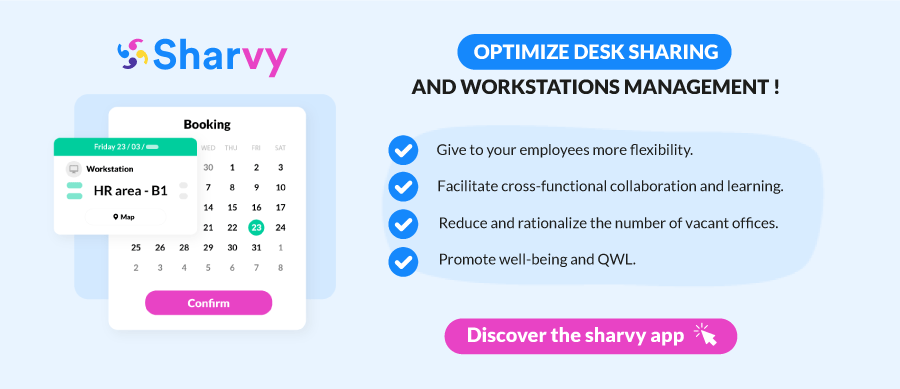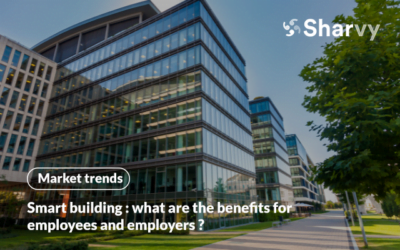In recent years, we’ve heard more and more talk about well-being at work and Quality of Life at Work (QWL). While some companies have embarked on this adventure out of fashion, others have started with a strategic perspective! Not least because they have realized that this represents a significant challenge for the future of the world of work.
But what is it? How does it help to boost productivity and commitment at work? Let’s start with a Wildgoose study conducted in 2017. It found that 61% of employees consider happiness and well-being more important than pay! Isn’t that a pretty astonishing percentage that requires some thought? Let’s find out why in this article!
What is the well-being at work?
According to the official definition of the WHO (World Health Organisation), well-being at work is “a state of mind characterized by satisfactory harmony between, on the one hand, the aptitudes, needs, and aspirations of the worker and, on the other, the constraints and possibilities of the working environment.“
In addition, we can also consider that well-being at work depends on various factors influencing the Quality of Life and Working Conditions (QWL) : safety of premises, layout of workspaces, flexibility of employment, interest in the tasks assigned, prospects for professional growth and development, social relations, etc.
In other words, QWL is a strong commitment and professional fulfillment factor! Consequently, it is up to the employer to put in place various actions and tools to ensure the mental health of its employees. There’s no doubt that this will have some positive impacts, both on their productivity and their performance. Employees will be more creative, loyal, less absent, and less ill!
At the same time, employees have high expectations of their employers in this area! Generation Y in particular – the Millennials, born in the 80s, who make up a large proportion of today’s young workers. For them, fulfillment and well-being at work are at the heart of their quest. And this is a significant factor in retaining their loyalty. So if they’re unsatisfied, they will be quick to change companies!
What are the key factors in well-being at work?
Well-being at work rests on several essential pillars.
Firstly, the physical environment plays a crucial role: well-designed, ergonomic and well-lit spaces where employees feel at ease promote concentration and reduce tension. Adding relaxation zones such as welcoming cafeterias or rest rooms can also make a big difference.
Solutions like Sharvy, which uses a fair algorithm to optimize company car park management and office allocation, help make these places more accessible and practical for employees.
Secondly, the psychological environment is just as important: a benevolent corporate culture, healthy relations between colleagues, and management based on listening and empathy all boost team satisfaction and commitment.
The balance between professional and personal life is also a determining factor, with practices such as flexible working hours and teleworking and policies encouraging employees to disconnect after work.
Finally, offering opportunities for personal development, whether through training, career prospects or regular feedback, helps employees to feel valued and fulfilled in their careers. A combination of these elements creates an environment conducive to performance and well-being.
What actions should be taken?

- Be flexible and give employees the freedom to organise their own schedules.
- Give meaning to the work of employees and allow them to develop in their missions.
- Encourage a good atmosphere with team building activities.
- Offer additional services : concierge services, childcare, sports and wellness activities, etc.
- Rearrange the spaces to make them more comfortable : ergonomic chairs, green plants, paintings, etc.
- Offer access to the company car park to all employees to improve QWl.
- Rethinking current spaces to create new ones that encourage exchanges and collaboration : flex office, break rooms, meeting bubbles, corpoworking and hot desking spaces, etc.
The company may also choose to implement a stress prevention plan. This can have a significant impact on well-being in the workplace! The reason is apparent : stress is recognized as an essential source of health problems. It causes physical, behavioral, and cognitive symptoms.
As a result, a new trend is emerging : salary is no longer the only criterion for choice. In other words, other criteria appear : happiness at work, the meaning of work, work-life balance, etc.
So, the objective for the company is to improve the employee experience. It can also set up an application (such as Sharvy) enabling employees to book a parking space or reserve an office before they arrive on-site or in the company canteen at lunchtime when they wish. In this way, employees know, even before they come on-site, that they can park, settle in at a given workstation, and have lunch in the canteen.
Which benefits for the company?
Ensuring the well-being and quality of life at work of its employees is a responsibility for companies and a major challenge. Among 22 different studies that looked at well-being programs and healthcare costs, the average return on investment was 3.27. This means that for every dollar that was spent on a Well-being programs, the company saved $3.27 because of reduced healthcare costs. (Source : Well Steps)

In addition, implementing actions and practices that promote well-being at work offers several benefits for the company. We can quote : increased productivity, greater employee commitment, reduced stress, improved employer brand image, etc.
In short, it benefits all parties! As a result, when the well-being at work policy is implemented sincerely, it is a formidable lever. Employees are more satisfied with their work. At the same time, companies are more functional and efficient. And, of course, society as a whole is better off. In short, what more could you ask for?
In conclusion
Well-being at work has become a crucial strategic lever for modern companies. By implementing targeted actions such as remote work, the creation of collaborative work environments, and the prevention of psychosocial risks, companies can not only enhance job satisfaction among employees but also strengthen their engagement and reduce absenteeism. An HR policy focused on occupational health and work organization contributes to an ecosystem where employees are more productive, motivated, and committed to their mission. In doing so, the company positions itself as a forward-looking entity, capable of meeting organizational challenges while cultivating a pleasant and efficient work environment. Such an environment not only boosts productivity but also enhances the overall well-being of employees, which is beneficial for the long-term success of the entire organization.
Want to learn more? Check out our latest articles!
Fairness at work : the foundation of the employee experience ?
What is fairness at work? Why is it so important in the workplace? How can fairness be guaranteed? Find the answers here!
Smart building : the benefits for employees and employers!
What is a smart building? What advantages does it offer? What challenges does it address? Find out in this article.
Company relocation : an opportunity to give a fresh start!
Are you about to carry out a company relocation? In this article, find out our top tips for getting the most out of your move.
Subscribe to our newsletter!
PARKING & WORKPLACE MANAGEMENT SOLUTION
Car park management - Charging points monitoring - Desk booking - Booking by time slots
SUBSCRIBE TO THE NEWSLETTER
Receive the latest Parking & Workplace trends by email once a month.












